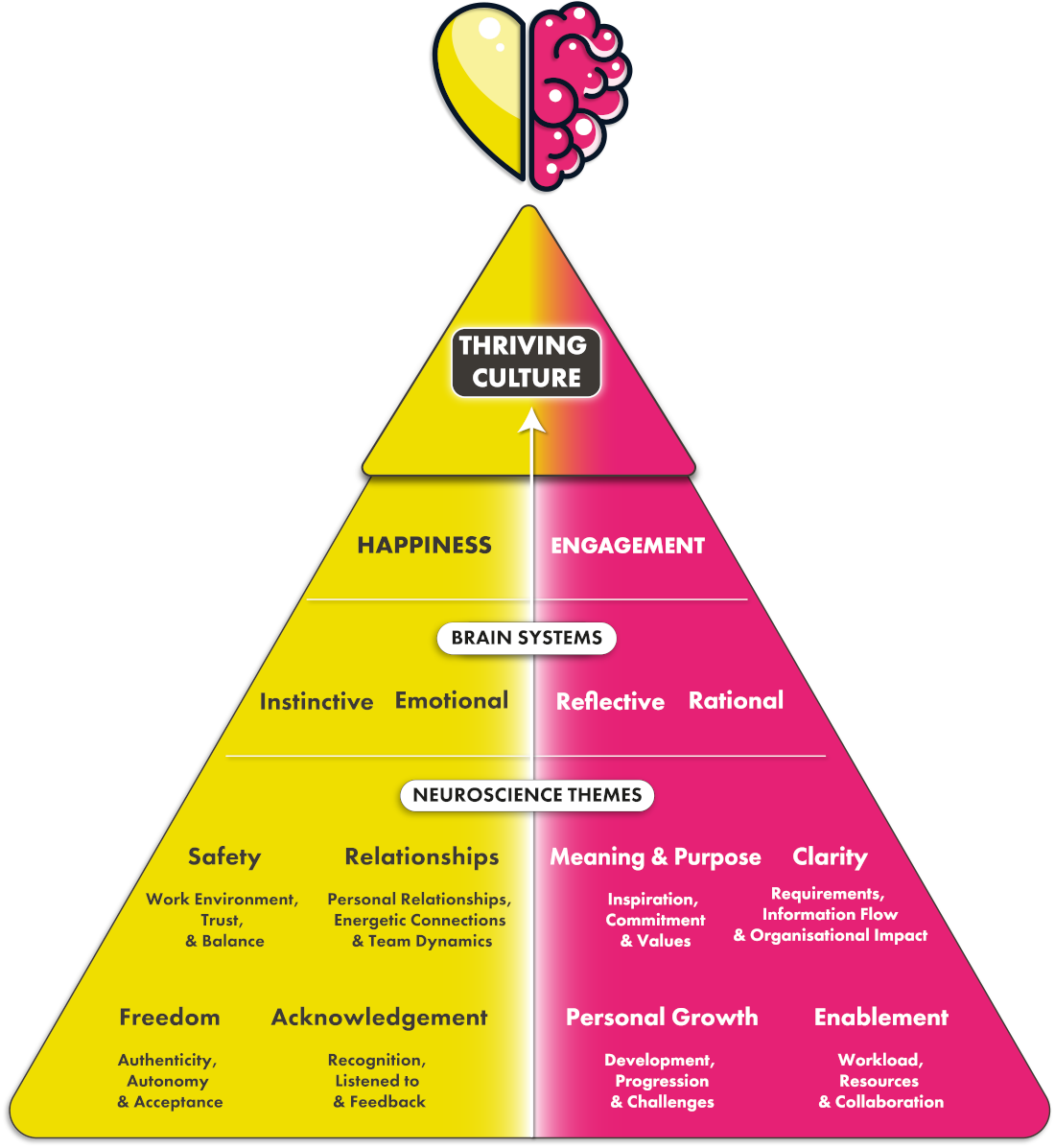Menu


Back in January 2021, our Head of Global Happiness, Matt predicted that once the economy started recovering from the pandemic we would see the biggest shift in talent in a generation. This prediction is starting to come true. A study by Microsoft showed that 41% of employees are thinking about leaving their current job in the next year, this stat increases to 63% of Gen Z workers. Attracting and retaining talented employees is now more important than ever.

This is being dubbed by the media as “The Great Resignation Wave” as people across the globe leave their places of employment. Experts are unsure whether these resignations will hit all at once in a “Turnover Tsunami” or the effect will be slower and longer felt. Anecdotally, having spoken to our clients and community members, we know that many organisations have seen an uptick in resignations.
On top of this, global expenses app, ExpenseOnDemand has published data showing how businesses are planning for the ‘new normal’ post-COVID: “95% of businesses surveyed said they would be recruiting for new roles in 2021 as the economy begins to recover and the vaccination efforts allows the country to open back up.”
When we look at The Happiness Index’s data, taking into account millions of data points globally, we can see that nearly 50% of people are scoring lower than a 6. This indicates that they are unhappy at work. This is not sustainable. It’s only natural that as people start to have more faith in the economy, they’re going to leave unacceptable working conditions.
Our neuroscience model (below) clearly demonstrates the reason for this timing:

Business leaders may say that people are ungrateful for leaving after the pandemic. However, this is actually because people were willing to put up with a lot for safety. For example, people are feeling more secure now because they’ve received the Covid Vaccine. This may mean they will stop putting their career happiness on hold and look for workplaces that fulfil all the other neurological themes above – such as relationships, purpose, enablement…
Whilst people are willing to put up with a lot while in the depths of a pandemic whilst unsure of the future, it’s unlikely they will do so long term. We expect people to start moving soon. This is because there’s only so long that people will endure chronic, or extreme unhappiness.
This isn’t to say that you need to avoid unhappiness entirely. Unhappiness is a human emotion and you can expect everyone to be unhappy at some point. However, you should know if people on your team are very unhappy, or have been unhappy for a prolonged period because this is when people will start to leave. This is particularly likely to be the case as the threat of the pandemic eases.
Whether or not business leaders want their people to leave, if their teams were happy and felt safe and fulfilled in their jobs, they wouldn’t leave. In 2021, it’s not enough to just offer someone a steady income.
At The Happiness Index, we believe that this is relatively simple: you need to listen to your people. By regularly checking in with your people you’ll be able to get a feel for how they’re feeling and gauge overall employee happiness of the organisation. We like to think of this as a weather report. It’s always good to know what the prevailing conditions are within your company. Although there will be rainy and sunny days, you may be able to spot patterns. If the weather isn’t great in your company a lot of the time, your people may be thinking about moving to sunnier climes.
Action is intrinsically tied to listening. It’s important that, once you’ve listened to your people, you then start to build a strategy. Begin to take action where improvements can be made, or concerns dealt with. Depending on where these focus areas are, this may range from small changes in communication, to larger-scale structural changes. Once you start acting on the feedback you’ll see the positive impact.
Over the years, we’ve spoken to many business leaders who tell us there is no point in listening to their people because they won’t be able to fix things anyway. Firstly, this might not be true. Alongside the big changes that you’re not able to make, you may discover smaller annoyances that you can fix. For example, buying a new kettle for your break room, sending an internal company email once a week, or better highlighting a benefit you already have. Secondly, the act of listening itself also helps. All things being equal, employees will prefer to work somewhere where their problems are listened to. Even if the company can only explain why changes cannot be made (yet, or ever), this is preferable to one that just ignores the situation entirely.
We believe that retaining and attracting talent are two sides of the same coin. If you build a culture where people feel listened to and valued, where their happiness is prized, and they can produce work that fulfils them. You will also build a company others will want to work for. Each industry, organisation and team is different, so there isn’t a one size fits all solution to this. Again, it comes down to listening to what your current employees need and what they appreciate of the options you’re currently giving them.
Creating a strong, engaged culture doesn’t happen overnight, it’s a long iterative process. It’s not one that you ever “complete”, it’s a journey rather than a destination. You will constantly need to be making modifications and adjustments, as your people, and their needs and values change. Something that works one year may not have the same impact the next year, or even the next month. Again, listening to the feedback from your team is crucial in allowing you to adjust to these changes.
As we look back over Matt’s data-led prediction about the biggest talent shift in a generation, it doesn’t seem to be so whacky now! If you’re worried about how this could impact your culture, then we want to help!
Discover more about our Cultural Assessment survey, and all the ways it can help you to understand the cultural health of your business, and build empathetic actions to help you create a thriving culture and improve retention and company performance.
Related articles
Get in touch for a quick chat with one of our experts to see how we can help you.
Take our benchmark to map where your organisation is now, and where it needs to be.